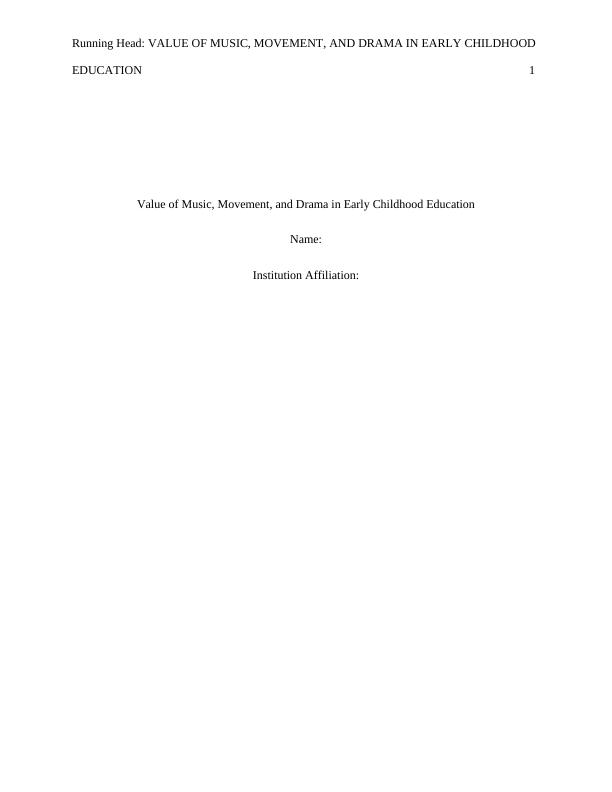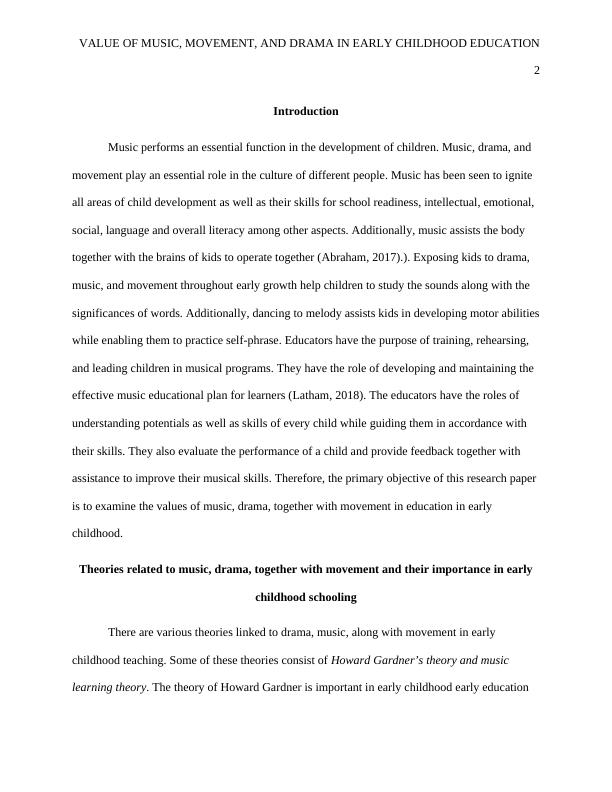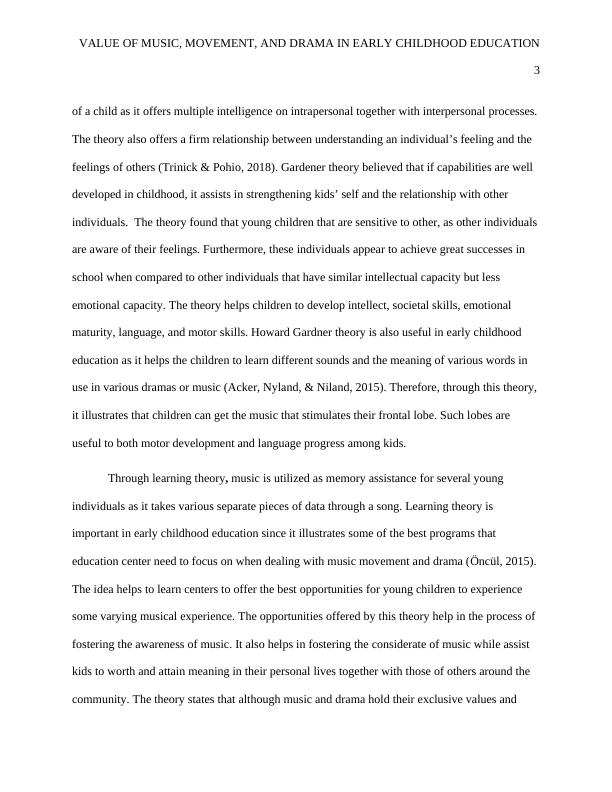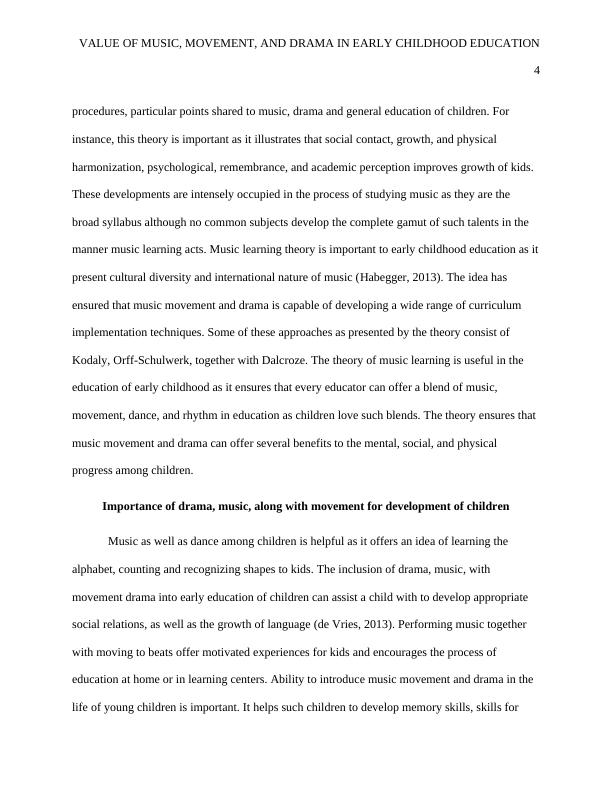Value of Music, Movement, and Drama in Early Childhood Education
This article reports on the technologies preschool teachers use to facilitate music learning experiences for children in their classrooms and why they choose to use or not use technologies.
11 Pages3011 Words439 Views
Added on 2023-06-04
About This Document
This research paper examines the values of music, drama, together with movement in education in early childhood. It explores theories related to music, drama, together with movement and their importance in early childhood schooling. The paper also discusses the importance of drama, music, along with movement for the development of children and the inclusion of drama, music, together with movement in the curriculum of early childhood.
Value of Music, Movement, and Drama in Early Childhood Education
This article reports on the technologies preschool teachers use to facilitate music learning experiences for children in their classrooms and why they choose to use or not use technologies.
Added on 2023-06-04
ShareRelated Documents
End of preview
Want to access all the pages? Upload your documents or become a member.
The Value of Music, Movement and Drama in Early Childhood Education : Essay
|7
|2097
|120
ECCDD303A Early Childhood Education and Care
|9
|2905
|197
Psychology Definition & Meaning -
|3
|394
|14
Importance of Creative Arts in Early Childhood Education
|8
|2202
|207
Music and Movement in Early Childhood Education
|7
|1731
|194
The Impact of Early Childhood Music Education
|38
|2773
|69




